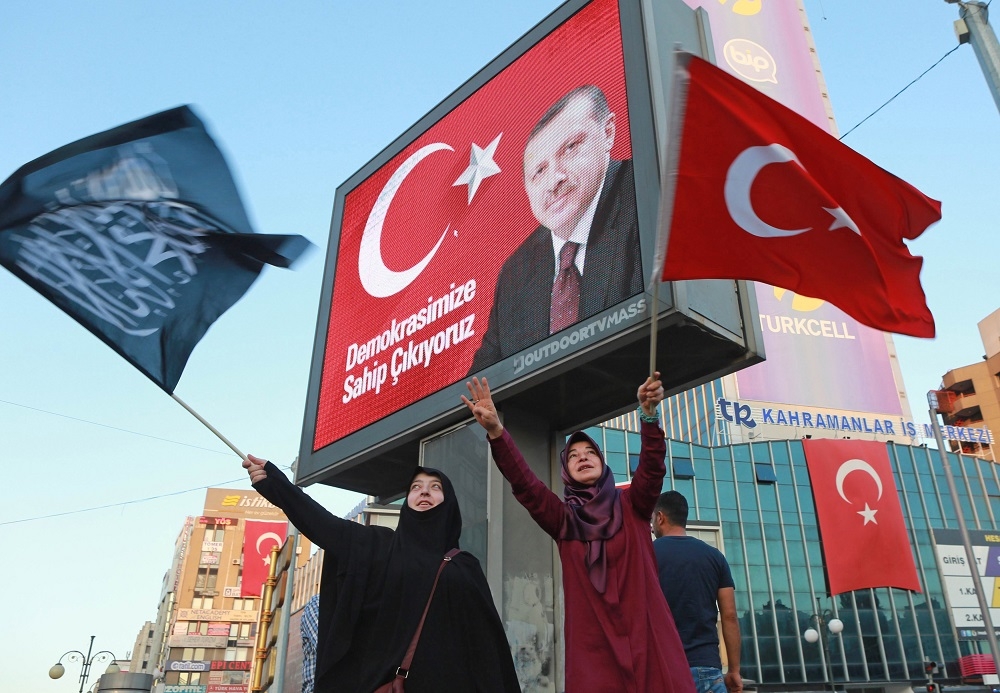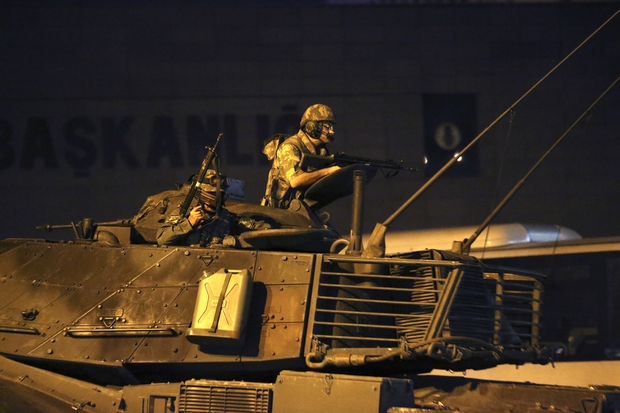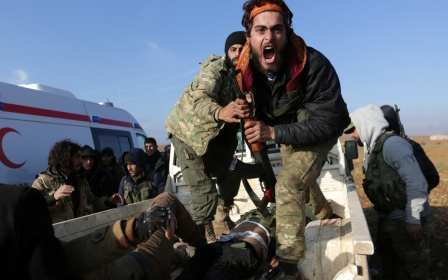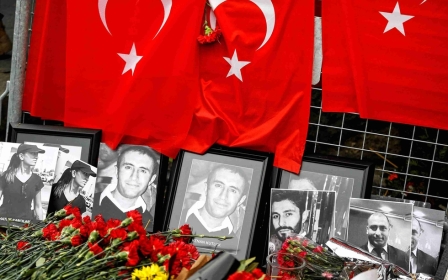Turkey: Why the West should show more support

December 19, 2016 was a dark day for us all. The assassination of Andrei Karlov, Russia’s ambassador to Turkey - which was screened to the world online – was as degenerate as it was deplorable. For all their misunderstandings, terrorists do understand the power of symbolism. It was no coincidence that Karlov, a pivotal figure in overseeing Turkish-Russian relations, was targeted.
Tragically for Turkey, it was not the first attack of its kind last year. The country witnessed a string of terrorist activity throughout 2016 – culminating in the abhorrent Istanbul nightclub attack on New Year’s Eve, which cost the lives of 39 innocent people.
Such is the strategic importance of this great nation that the way it responds to the challenges ahead will decisively shape global security
That said, global unity was a rarity in a tempestuous 2016. We witnessed events one might have perceived as utterly impossible a year earlier. A victory for Brexit. Donald Trump in the White House. And a new prime minister in the UK.
And there were recurring nightmares. A migrant crisis. A divided Middle East riddled with raging conflict. A desperate humanitarian situation in Syria, now contained by a precariously brokered ceasefire arrangement.
The world begins 2017 on edge as a result. Yet there is one country more on edge, and with more at stake, than most: Turkey.
Such is the strategic importance of this great nation that the way it responds to the challenges ahead will decisively shape global security.
'Our 9/11'
Turkey has grown into an essential broker for peace in Syria. It does more than anyone to mitigate the migrant crisis. Currently, the number of refugees in Turkey stands at more than three million – the host country of the ‘largest refugee population in the world’ according to recent EU figures.
Even as Turkey’s global importance continues to grow, it has no choice but to prioritise domestic security first and foremost. Terrorist attacks – such as the Karlov murder – are on the rise inside its borders. The country is also fighting an extremely violent insurgency by Kurdish terrorist factions.
The UK has a duty to listen to our NATO ally’s view, particularly at such a challenging time for Turkey as it squints in the global spotlight
On top of all this, Turkey remains in a state of shock since the attempted coup last July. This is something most Westerners fail to understand. "Our 9/11" is how many Turks describe the events of that weekend - an attempt to bring down democracy in the country, once and for all. It was a night of violence, in which the president of Turkey was threatened with assassination. Turkish cities were attacked by fighter jets. And, at the end of it all, more than 250 innocent people were dead.
The Turkish government is adamant about the origins of the coup and post-coup, events. The blame is laid squarely at imam Fethullah Gulen, a man currently in the United States, who is said to have masterminded not just the coup, but also a sustained attempt to create a parallel state in the country and take power.
The UK has a duty to listen to our NATO ally’s view, particularly at such a challenging time for Turkey as it squints into the global spotlight. We may not agree with the Turkish government on everything. We should not shy away from raising concerns about due process and the rule of law in post-coup Turkey. But we must listen nonetheless.
Perils of not standing with Turkey
It’s in respect of listening that the UK Foreign Affairs Committee (FAC), including myself, visted Turkey last week. For months now, the FAC has been looking into UK-Turkey relations as part of a parliamentary enquiry, of which this visit formed a part.
We spoke with President Recep Tayyip Erdogan and Prime Minister Binali Yıldırım, the former for more than two hours, a clear sign that Turkey’s leaders recognises the role the FAC plays in the foreign affairs debate. We also heard from government officials, institutions, local businesses, and citizens. Above all, we sought to improve the FAC’s collective understanding of the events that have unfolded in Turkey during the past year, how they have impacted and continue to impact Turkish society.
Turkey will be an even more important partner to the UK in a post-Brexit landscape
We agreed, and disagreed, with our Turkish friends while we were there. But we talked together. And it’s this talk that will ultimately help in shaping UK-Turkey relations, both now and in the future. There are clear opportunities for increasing dialogue and partnerships on security and trade. As I told the BBC World Service last week, Turkey will be an even more important partner to the UK in a post-Brexit landscape.
A recent piece in the Guardian – an often staunch critic of modern Turkey – reluctantly concluded that "Turkey deserves our support". On this – how right they are. This is a country that faces immeasurable challenges from either side of its own borders. It’s a country that holds longstanding ties with the UK. And it’s a country that is integral to peace, and stability of the Middle East.
The UK must do all it can to stand alongside its partner. The perils of failing to do so are unimaginable.
Daniel Kawczynski is the Conservative MP for Shrewsbury and Atcham and a member of the Foreign Affairs Committee’s UK-Turkey relations enquiry, which visited Turkey in January as part of their ongoing inquiry into UK-Turkey relations.
The views expressed in this article belong to the author and do not necessarily reflect the editorial policy of Middle East Eye.
Photo: Supporters of president Recep Tayyip Erdogan take to the streets in Ankara in August 2017 (AFP)
Stay informed with MEE's newsletters
Sign up to get the latest alerts, insights and analysis, starting with Turkey Unpacked
Middle East Eye delivers independent and unrivalled coverage and analysis of the Middle East, North Africa and beyond. To learn more about republishing this content and the associated fees, please fill out this form. More about MEE can be found here.






